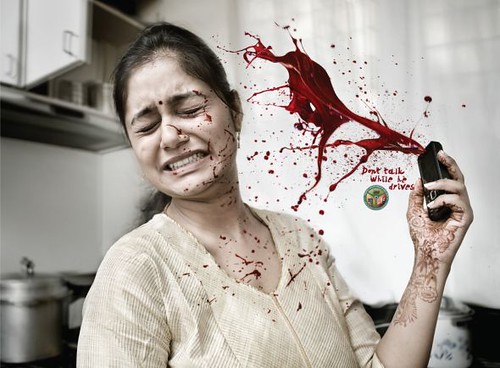Warning: Don’t click ‘More’ if you’re unable to handle images a tad on the morbid side. Seriously. This is nothing if not controversial.
That aside, this is possibly the most eye-opening ‘don’t talk and drive’ anti-cellphone campaigns I’ve ever seen, and I’m sure you’ll agree. The idea of this campaign, by the Bangalore Traffic Police, is that if you dare call a friend or relative while he/she is driving, their peril is just as much your fault as it is theirs. Talk about a guilt trip.
Personally, I tend to disagree with the message this campaign is sending: If I order a hamburger at McDonald’s, I’m not responsible if the line cook burns himself on the grill.
I’d actually like to know if I’m alone, here – what do you think? Is this campaign effective? Is it correct in its accusations? Is it speaking to the soul of every man and every woman who’s ever been in love?


[Via Dyvantity]




